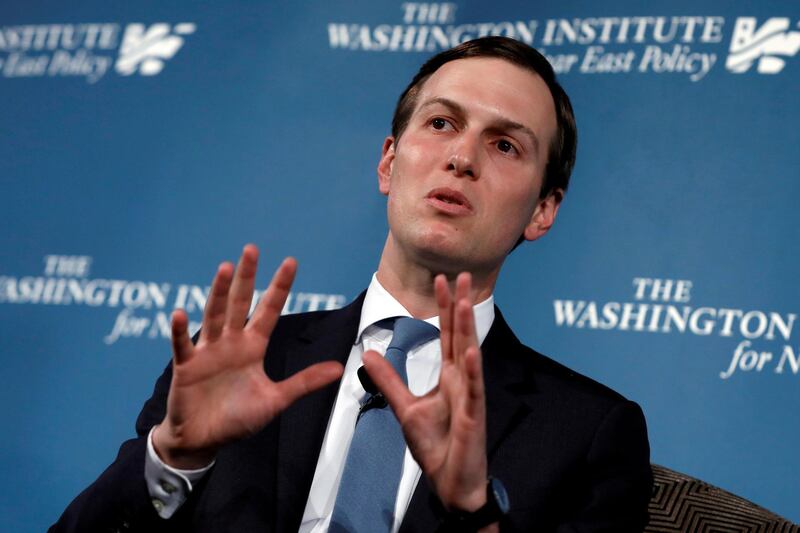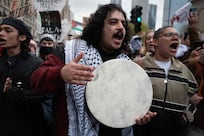US President Donald Trump's son-in-law and senior adviser Jared Kushner has long promised a big reveal of his so-called "peace plan" after Ramadan. His interview on Sunday with a US broadcaster could have been an opportunity for the Middle East envoy to win Arab and Palestinian backing for the US's "deal of the century". Instead, when asked if he thought that Palestinians could govern themselves, Mr Kushner replied: "The hope is that they, over time, will become capable of governing". Not only was this deeply offensive; the immediate impact has been to set back any hope of a legitimate peace process. As senior Palestine Liberation Organisation negotiator Saeb Erekat tweeted, Mr Kushner "disqualified himself from any role in the peace-making".
Mr Kushner’s statement was deemed to be a reference to the Palestinian boycott of the upcoming economic conference for Palestine, hosted by the US and Bahrain. The refusal to attend by the Palestinian Authority has been criticised as a luxury it can ill afford, at a time when ordinary Palestinians are in dire need of aid and an economic crisis looms. But inferring that Palestinians are incapable of self-governance is neither going to convince them to attend nor bolster Arab support for any peace deal. The statement is not only condescending, it is simply untrue because the Palestinian people have never been given a chance to govern themselves in the first place.
Certainly, Palestinian leadership has been flawed and not always acted in the best interests of its people. The Gaza Strip was seized by Hamas in 2007 while Fatah runs the occupied West Bank. The two political factions have been at loggerheads for more than a decade and there is no unified government. In addition, both territories are rife with mismanagement and corruption. However, this bleak situation cannot be blamed on Palestinian civilians. The hardships they endure, from the Gaza blockade to poor basic supplies of water and power, stem from the ongoing Israeli occupation, which has made it impossible for citizens to travel or even communicate between the two territories. Meanwhile illegal settlements and the ubiquity of checkpoints have crippled the West Bank, preventing communities from coming together and ordinary Palestinians from leading normal lives. The crippling siege on Gaza has also entrenched Hamas further and rendered violence against protesting Gazans an everyday occurrence.
Nefarious behaviour from politicians and instability are not unique to Palestine. Israeli politics of late have been rife with alleged misdemeanours and back-stabbing, with prime minister Benjamin Netanyahu expected to be indicted for corruption. Israel is now facing its second election this year after the Knesset was dissolved and Mr Netanyahu's former allies have turned on him – yet no one claims that Israelis cannot self-govern. The reality is that political machinations do not justify stripping an entire population of their basic rights. Wherever the Palestinian diaspora has been given the chance to thrive, its members have excelled and made names for themselves. There is no doubt they could do the same in their homeland, given half a chance.





